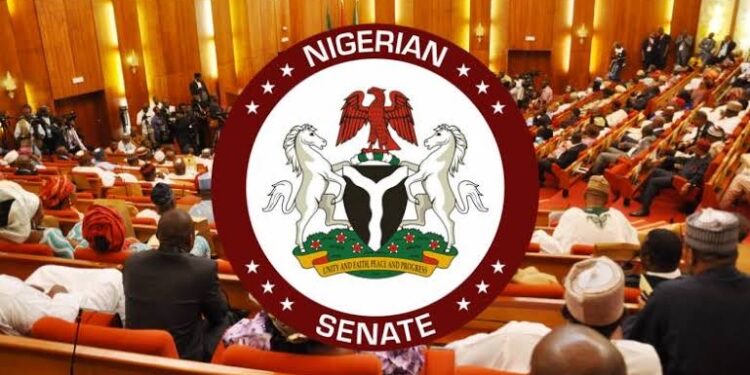As constitutional reform efforts gather momentum, the Senate Committee on Constitution Review (CRC) has announced the receipt of 49 fresh proposals for the creation of new states and local government areas (LGAs) across the country, ahead of its zonal public hearings holding from July 4 to 5.
According to a statement issued on Thursday by the media office of the Senate Leader, Senator Opeyemi Bamidele, the committee has received 31 separate proposals for state creation and 18 for new LGAs from diverse ethnic and interest groups across Nigeria.
The public hearings, a major phase in the ongoing constitutional amendment process, are taking place concurrently across the six geopolitical zones. Designated cities are hosting the sessions: Enugu (South-East), Ikot Ekpene – Akwa Ibom (South-South), Jos (North-Central), Maiduguri (North-East), and Kano (North-West). The South-West hearing is being coordinated under Senator Bamidele’s supervision.
However, the North-West hearing was postponed in honour of the late statesman and business icon, Alhaji Aminu Dantata.
Other coordinating senators include Senate President Godswill Akpabio (South-South), Deputy Chief Whip Peter Nwebonyi (South-East), Deputy Senate Leader Oyelola Ashiru (North-Central), Chief Whip Tahir Monguno (North-East), and Deputy Senate President Barau Jibrin (North-West).
Providing further clarity, Senator Bamidele disclosed that the 31 proposals for state creation are distributed as follows: North-Central (8), North-East (6), North-West (6), South-East (5), South-South (6), and South-West (4).
Among these is a notable submission by stakeholders from the Federal Capital Territory (FCT) demanding its recognition as a full-fledged state.
In the case of new LGAs, the breakdown is: North-West (7), North-Central (5), South-South (3), South-East (1), South-West (1), and North-East (1).
The proposals, according to the committee, reflect growing agitation for decentralisation, improved governance, and resource access across marginalized communities.
Beyond territorial adjustments, security tops the list of constitutional priorities. The committee has received a bill seeking to amend the 1999 Constitution to allow for the creation of state police and other security agencies by state governments.
Another related proposal advocates the establishment of State Security Councils to support governors in addressing local security concerns.
Senator Bamidele noted that the pressures for localised policing stem from the increasing spate of insecurity, including banditry, kidnapping, and communal violence, which have overwhelmed federal policing structures.
While some political leaders support state police as a solution to Nigeria’s security crisis, critics warn it could be used by governors to suppress opposition and curtail civil liberties.
Currently, some regions have taken matters into their own hands by forming regional security outfits like Amotekun (South-West), Ebube Agu (South-East), and Hisbah (North-West).
The committee is also weighing proposals to devolve powers from the federal government to states by transferring certain items from the Exclusive Legislative List to the Concurrent List.
Specifically, one bill recommends allowing both federal and state governments to regulate activities on interstate waterways, shipping, and labour.
There is also a proposal that seeks to guarantee equal representation for each local government in the State House of Assembly, to promote equitable distribution of resources and inclusive governance.
In a significant move toward broadening political participation, the committee is considering proposals for independent candidacy and diaspora voting.
The independent candidacy bill would allow individuals to contest for elective positions without political party affiliations, while the diaspora voting proposal aims to enfranchise millions of Nigerians living abroad.
These proposals have been lauded by electoral reform advocates who argue they are essential to strengthening democracy and legitimacy.
On governance, the panel is looking to amend the constitution to compel presidents and governors to submit annual appropriation bills within a fixed timeframe.
Another proposed amendment seeks to reduce the period during which the executive can make withdrawals from the Consolidated Revenue Fund without legislative approval from six months to three.
A revision of the derivation formula has also been proposed, which would allow states to retain a portion of revenues they internally generate—expanding their financial independence.
Senator Bamidele assured that all submitted proposals will be critically reviewed during the public hearings, where traditional leaders, civil society organisations, professional bodies, and the general public are expected to make their inputs.
“The committee is committed to a transparent, inclusive, and responsive amendment process that reflects the aspirations of all Nigerians,” he said.
Following the hearings, the CRC will collate reports, prepare its final recommendations, and lay the groundwork for constitutional amendments in line with legislative procedures.
Nigeria currently operates a federal structure with 36 states, 774 LGAs, and the FCT, which is administered by a Minister.
However, the calls for restructuring, decentralisation, and greater grassroots autonomy continue to shape the national conversation.
Do you want to share a story with us? Do you want to advertise with us? Do you need publicity for a product, service, or event? Contact us on WhatsApp +2348183319097 Email: platformtimes@gmail.com
We are committed to impactful investigative journalism for human interest and social justice. Your donation will help us tell more stories. Kindly donate any amount HERE




